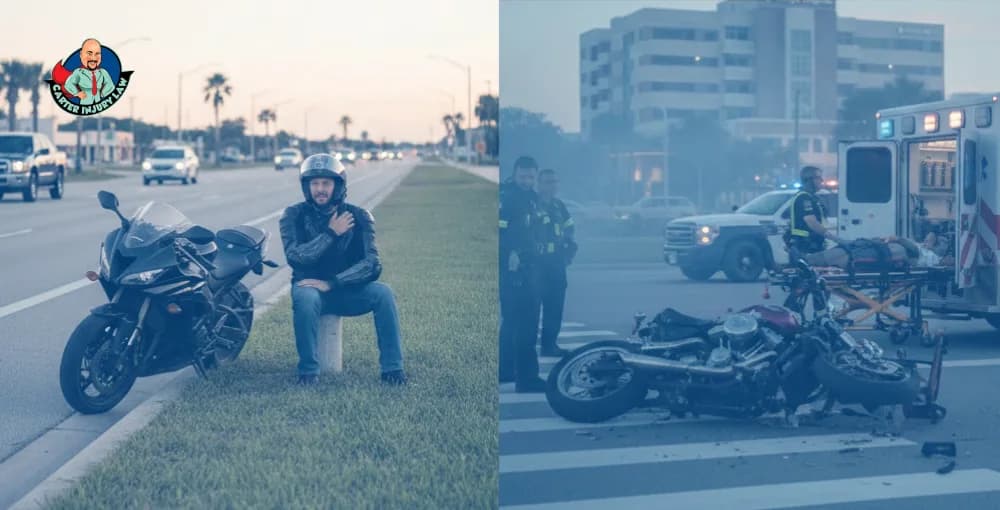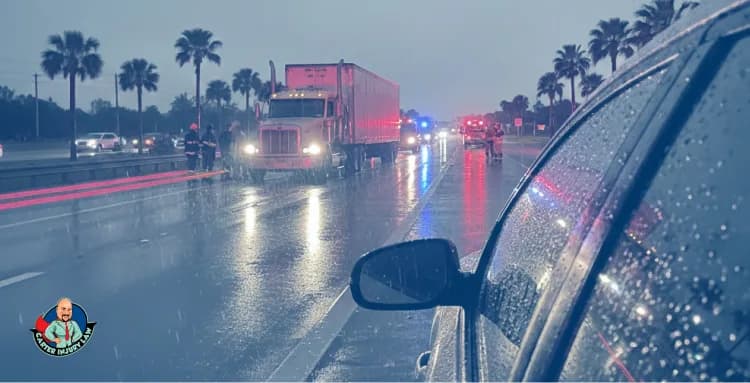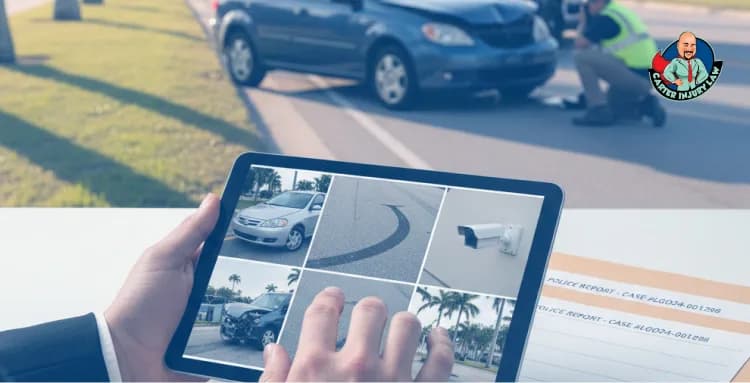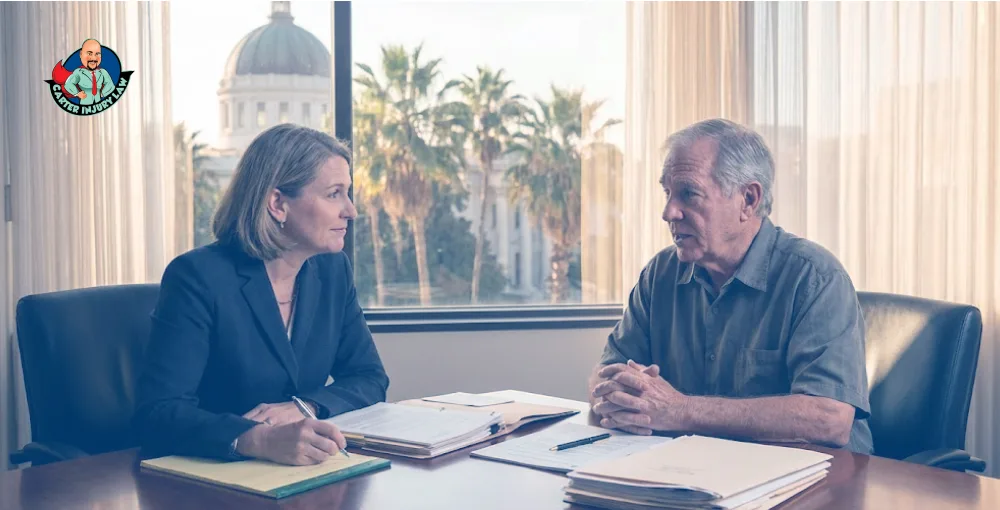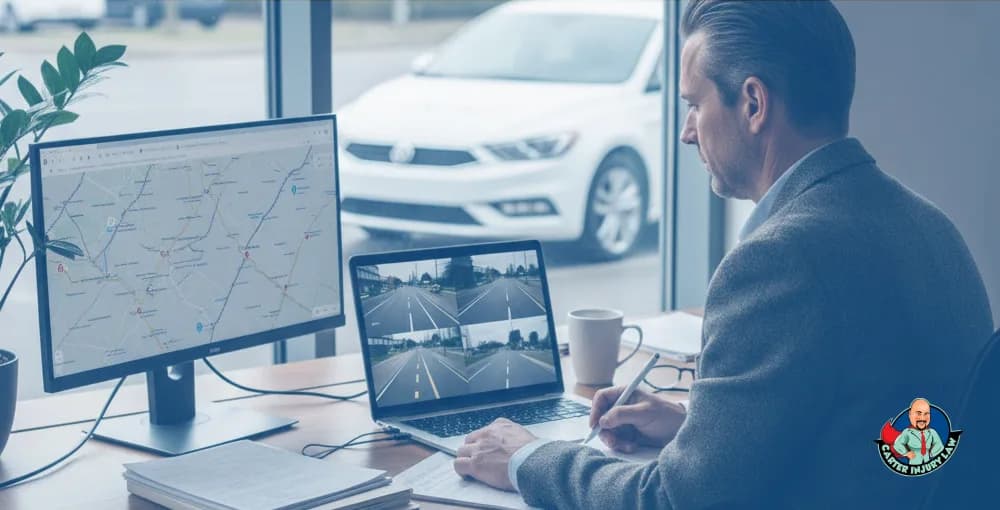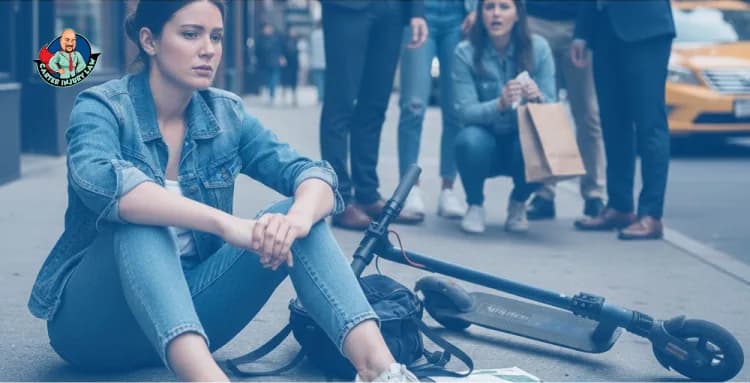I have represented clients after all kinds of highway crashes; however, there is something different about RV accidents. The first one I ever handled still lives with me. A family from out of state had come to Florida for what they thought would be the trip of a lifetime. Instead, they ended up in the hospital, their RV twisted across the highway like a broken toy.
The truth is, when an RV collides with anything on a Florida interstate, the result is rarely minor. These vehicles are massive, top-heavy, and often driven by people who are not prepared for how much space they need to stop or turn. Add in our unpredictable weather and crowded highways, and the margin for error disappears fast.
I have learned that an RV crash doesn’t just look different from a car accident, it feels different, it breaks lives apart in a way most people never imagine. And the hardest part is no one ever thinks it will happen to them until the moment it does.
(1) The Size and Weight Problem That Makes RV Crashes Worse
One thing I tell my clients is that an RV is not only a car with more room but also a rolling building. These vehicles weigh many tons, some more than a fully loaded delivery truck, and they sit higher off the ground. That combination makes them harder to stop and easier to tip.
I have seen crashes where the driver swore they had enough space to brake, but the RV kept sliding forward like a train that had lost its tracks. I have seen rollovers on off-ramps where a slight curve became a disaster because the center of gravity was too high. When an RV goes over, everything inside goes with it, from furniture to glass cabinets, and the people inside are thrown into the chaos.
For most drivers sharing the road, the size alone can be terrifying. A car can vanish in the blind spot of an RV, and if the RV drifts into their lane, the smaller vehicle doesn’t stand a chance. This isn’t just physics, it is why families come to me after an accident, wondering how something that looked so much like a vacation could leave such a lasting scar.
(2) Drivers Who Aren’t Truckers and What That Means on the Road
What makes RV crashes so different is that most of the people driving them are not professional drivers. They are tourists, retirees, or families on the road for the first time in years. They are not trained to handle a vehicle the size of a bus, yet the law lets them take the wheel without special licensing or months of preparation.
I have worked with clients who admitted they underestimated how hard it would be to manage an RV. They didn’t realize how wide the turns needed to be, how far ahead they had to start braking, or how quickly fatigue sets in when you’re guiding a forty-foot vehicle down a crowded highway. For some, it was their first time behind the wheel of something that large, and it showed in the way the accident unfolded.
The harsh truth is that an RV is less forgiving than a car. A small mistake in a sedan might mean a dented bumper. The same mistake in an RV can roll the entire vehicle and injure everyone inside. I have seen it happen, and I have seen the shock in families’ eyes when they realize they were in over their heads long before the crash.
(3) Florida Roads and Weather That Turn Minor Mistakes Into Disasters
Florida has its own set of rules when it comes to driving, and RVs don’t handle those rules well. Our highways can go from clear and dry to slippery and dangerous in a matter of minutes. A sudden downpour, what we call a summer storm, can flood lanes and cut visibility to almost nothing. When that happens, smaller cars slow down and keep control. An RV, with all that weight and height, becomes much harder to manage.
Another problem is the wind. Along the coast or across open stretches of highway, crosswinds push against the tall sides of an RV like a sail. A crosswind is simply wind blowing from the side instead of head-on, and it can shove an RV out of its lane before the driver has a chance to react. I have seen entire rigs sway so badly that passengers inside thought the vehicle was about to roll.
Then there is the traffic itself. Florida highways are filled with tourists, many driving rental cars or heading somewhere they have never been before. That means sudden lane changes, missed exits, and plenty of confusion. For an RV driver who is already struggling to steer a massive vehicle, those quick moves around them can be the final straw.
I have seen all of these factors come together in one accident, and the results are always worse than anyone expects. Our roads are not built for mistakes, and RVs don’t give drivers a second chance.
(4) The Aftermath for Families and Why It Cuts Deep
What makes RV accidents especially heartbreaking is what happens inside the vehicle when things go wrong. Unlike cars, which are built with fixed seats, seatbelts, and reinforced frames, an RV is part vehicle, part living room. People often move around inside, sitting at tables or lying on couches while the vehicle is in motion. When a crash happens, they are completely unprotected.
I have represented families where parents were thrown across the cabin or children were struck by furniture that broke loose. Cabinets burst open, glass shattered, and heavy objects turned into projectiles. The injuries are not only physical, they are emotional. A trip that began as a vacation ends with months of rehabilitation and a deep fear of ever getting back on the road.
I still remember one client telling me that the hardest part was not the surgery or the medical bills, it was explaining to their kids why the dream trip they had planned for so long had turned into a nightmare. That kind of pain does not heal easily, and it is why I take these cases personally. Families deserve to know someone is fighting to put their lives back together.
(5) Contingency Fee Representation, We Fight, You Rest
When a family comes to me after an RV accident, my first job is to take the weight off their shoulders. Sometimes the crash is caused by the driver’s inexperience, sometimes by poor maintenance, and sometimes by the rental company that put an unsafe vehicle on the road. Sorting through those details takes time; however, it is the only way to make sure the right people are held responsible.
I also know the financial stress that follows an accident. Medical bills pile up, wages are lost, and the idea of paying a lawyer can feel impossible. That is why I work on a contingency fee basis. Put simply, that means my clients never pay me upfront. I only get paid if we win the case. It allows families to focus on healing, while I take on the fight without adding to their burden.
I meet my clients in hospital rooms, in their homes, or over the phone when they are still in shock. I explain every step, answer every question, and make sure they know they are not facing this by themselves. For me, this work is about protecting people who never saw this coming and giving them a fair chance to rebuild their lives.
I cannot stop an accident from happening; however, I can stand beside a family once it does. I can take on the companies and insurers that try to walk away, and I can fight until my clients have the resources they need to move forward. That is the role I play, and it is why Carter Injury Law exists.




